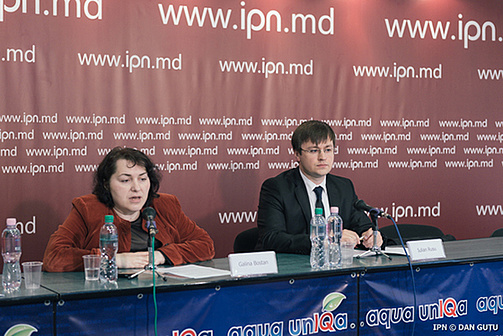In a news conference at IPN, CAPC expert Iulian Rusu said the bill aims to institute the digital signature and mechanisms for providing services for certifying the digital signature and accrediting the providers of such services. The bill’s text shows that this is a solution for adjusting the national legislation to the provisions of the EU Framework Directive 1999/93/ and the bill largely meets the requirements in this respect.
But the requirements for recognizing the digital signatures on Moldova’s territory are excessive. Thus, the relevant provisions are applied cumulatively, not alternatively, as the EU Directive stipulates. “It’s impossible for the same provider of certification services from another state to be accredited in the conditions defined by the given bill. Also, a provider of certification services accredited in Moldova cannot guarantee the recognition of the certificate. A bilateral agreement between Moldova and the state of origin of the digital signature is also required,” stated Iulian Rusu.
He underlined that the legislative initiative provides alternatively either the requirement to get accreditation voluntarily in any of the EU member states, respecting the Directive conditions, the requirement for the provider of certification services from the EU to guarantee the certificate or the requirement concerning the bilateral agreement between the EU member states. “The EU context allows such options, but in the case of Moldova it is impossible to ensure the first two requirements cumulatively, while the implementation of one of the two requirements together with the third is useless as a bilateral accord signed in reciprocity conditions already exists,” said the CAPC expert.
He added that the alternative application of the imposed requirements is insufficient as they can generate insecurity when using the digital signature issued abroad. Moldova cannot yet implement the freedom of selection thorough the Association Agreement with the EU as this accord is to be signed yet.
Therefore, the CAPC experts recommend using the option of bilateral or multilateral agreements as single form for ensuring the safe application of the digital signature issued abroad, and facilitating rural population’s access to digital signature by training the people to use it. The bill’s impact is generally positive for guaranteeing the fundamental rights as it provides an alternative for identifying, in safe conditions, the persons for whom distance identification is more advantageous.




